Efrén Álvarez
Económicos
This interview contains excerpts from a telephone conversation with Efrén Álvarez, organised around two questions. The first refers to form and the use of diagrams as a technology for representing social dynamics. The second concerns the bases or themes of the work that some of these diagrams deal with. The labour relations presented here are measured more by information than by the labour power or time used, therefore depicting cycles that are difficult to break. As he explains in the conversation, they do not represent people, but rather contracting parties, icons of the system of production that have nothing to do with individuals or people and therefore do not reflect the true complexity of the structures of power that, according to Michel Foucault, form the basis of personal relationships. Despite presenting the diagram as technology, Foucault refers to a linguistic mechanism that tries to resolve the exercise of not calling things by their names, a practice that human resources departments in companies have learned to take advantage of in a sinister way.
Efrén Álvarez explains his intention to invert this economic euphemism and call things by their rightful names, not using words, but using drawings, at a time when there is little hope that words like ‘businessman’ and ‘worker’ can recover their meaning. The human question is precisely what Efrén Álvarez has eliminated from his diagrams, trying to emulate an employment contract. This question – the human, personal and individual question – as in Nicolas Klotz’ 2007 film La question humaine, is the very one that has disappeared forever from ‘just business’, capitalism’s banner question.
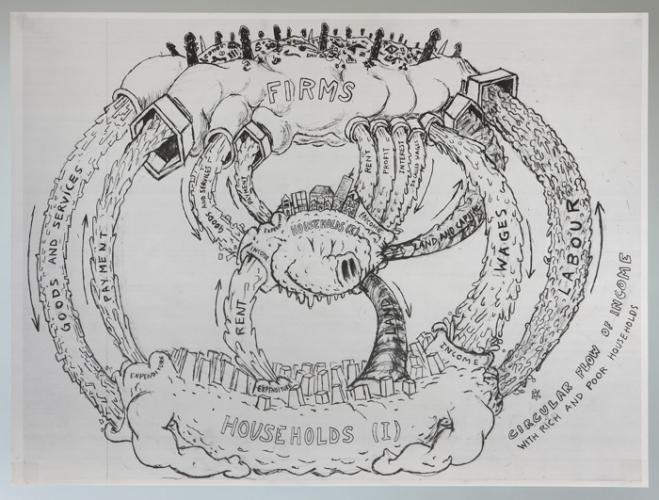
Exhibition view. Efrén Álvarez. Económicos, 2011
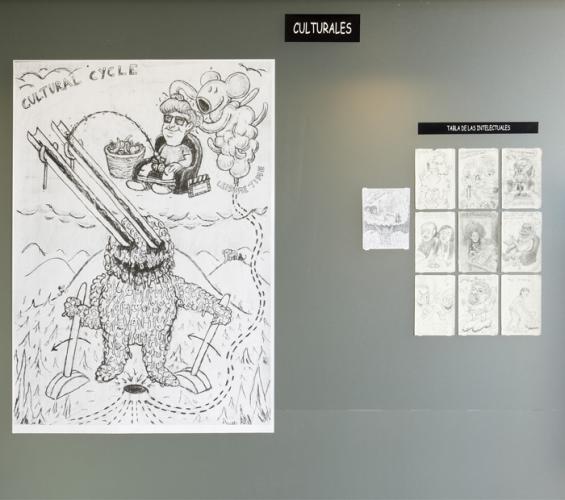
Exhibition view. Efrén Álvarez. Económicos, 2011
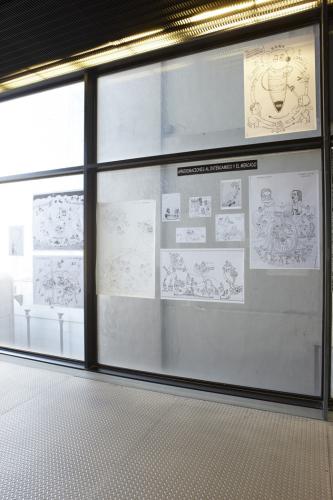
Exhibition view. Efrén Álvarez. Económicos, 2011
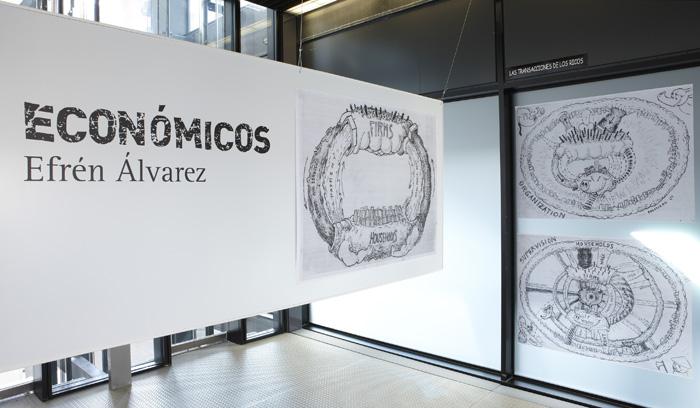
Exhibition view. Efrén Álvarez. Económicos, 2011
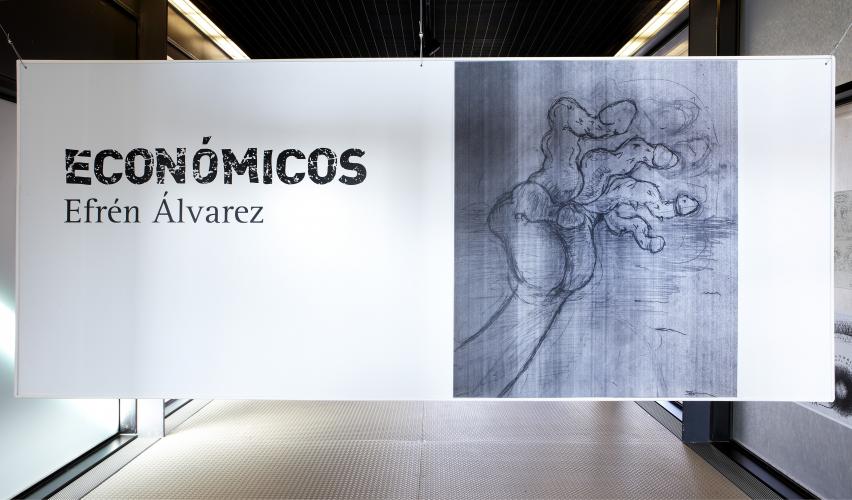
Exhibition view. Efrén Álvarez. Económicos, 2011
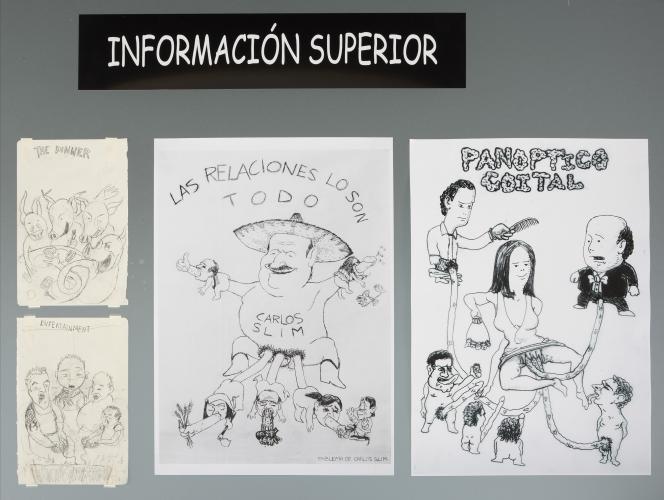
Exhibition view. Efrén Álvarez. Económicos, 2011
Share
- Date:
- 12/03/2011
- Production:
- José Luis Espejo
- Voice-over:
- Luis Mata
- License:
- Creative Commons by-nc 4.0